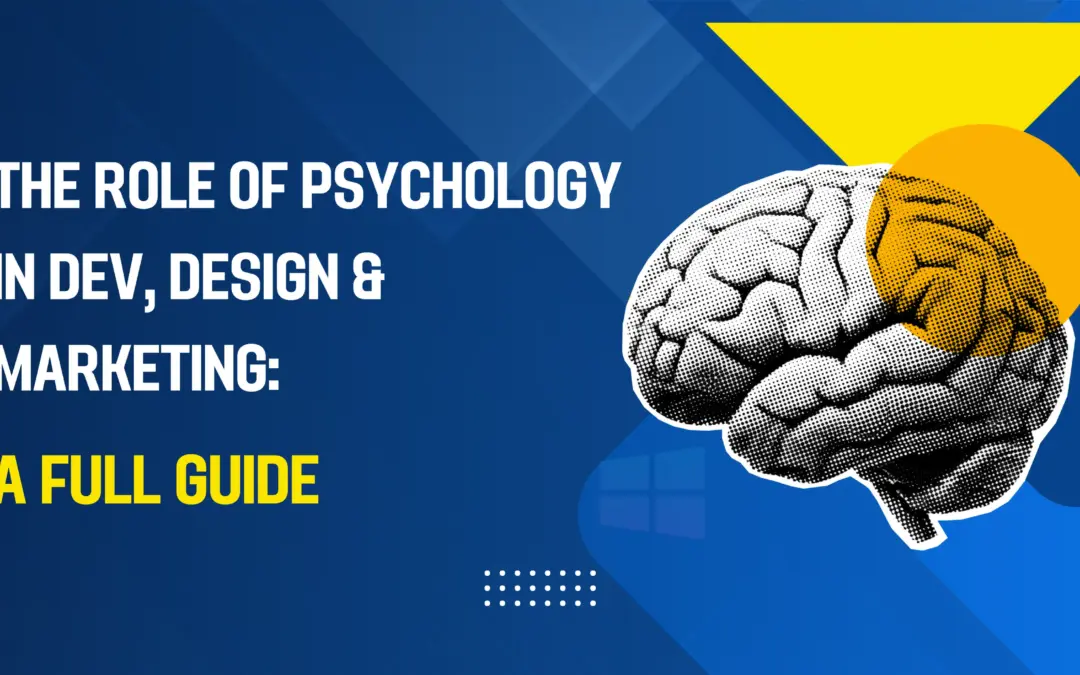Understanding human behavior is at the core of successful digital experiences. Whether you’re developing an app, designing a website, or crafting a marketing campaign, psychology plays a crucial role in how users perceive, interact with, and respond to your brand.
Kedra Digi believes that blending psychology with digital strategies leads to more engaging, intuitive, and high-converting experiences. In this guide, we’ll break down how psychology influences development, design, and marketing—and how you can use these insights to connect with your audience in and beyond.
Why Psychology Matters in Digital Strategy
People don’t make decisions based on logic alone—emotions, biases, and subconscious triggers heavily influence their actions. By applying psychological principles, you can:
- Improve user experience (UX) by anticipating needs and reducing friction.
- Boost engagement with designs that naturally draw attention.
- Increase conversions by aligning messaging with how people think.
Let’s dive into how psychology shapes each area.
Psychology in Development (Dev)
When building digital products, developers often focus on functionality. But without considering psychology, even the most technically sound app can fall flat.
Key Psychological Principles in Dev:
- Cognitive Load Theory
- People can only process so much information at once.
- Simplify interfaces to avoid overwhelming users.
- Example: A banking app that breaks transactions into clear steps instead of dumping data on one screen.
- Hick’s Law
- The more choices users have, the longer they take to decide.
- Streamline options to guide users toward desired actions.
- Example: A food delivery app showing a curated list of top picks instead of hundreds of restaurants upfront.
- The Zeigarnik Effect
- People remember unfinished tasks better than completed ones.
- Use progress bars or incomplete profiles to encourage completion.
- Example: LinkedIn’s profile strength meter nudges users to add more details.
Psychology in Design
Great design isn’t just about aesthetics—it’s about how users feel when interacting with your brand.
Key Psychological Principles in Design:
- Gestalt Principles
- The brain naturally groups related elements.
- Use proximity, similarity, and continuity to create intuitive layouts.
- Example: A well-spaced form feels easier to fill out than a cluttered one.
- Color Psychology
- Different colors evoke different emotions.
- Warm colors (red, orange) create urgency; cool colors (blue, green) build trust.
- Example: Health brands often use blue to convey reliability.
- Fitts’s Law
- The time to click a target depends on its size and distance.
- Make key buttons large and easy to tap (especially on mobile).
- Example: E-commerce sites place “Add to Cart” buttons prominently.
Psychology in Marketing
Marketing isn’t just about selling—it’s about understanding what motivates people to take action.
Key Psychological Principles in Marketing:
- Social Proof
- People follow the crowd.
- Use testimonials, reviews, and user counts to build trust.
- Example: “Join 50,000+ Aussies who trust our service.”
- Scarcity & Urgency
- Fear of missing out (FOMO) drives quick decisions.
- Limited-time offers or low-stock alerts increase conversions.
- Example: “Only 3 spots left at this price!”
- The Reciprocity Principle
- People feel obliged to return favors.
- Offer free samples, trials, or valuable content first.
- Example: A free e-book in exchange for an email signup.
How to Apply These Insights
Australian consumers value authenticity, simplicity, and trust. Here’s how to tailor psychology-based strategies locally:
- Use relatable Aussie slang or imagery to create familiarity.
- Highlight local success stories to strengthen social proof.
- Keep messaging clear and straightforward, dislike overly salesy pitches.
Final Thoughts
Psychology is a powerful tool that shapes how people engage with digital products. By understanding cognitive biases, emotional triggers, and behavioral patterns, you can create more effective dev strategies, designs, and marketing campaigns.
Kedra Digi helps businesses across leverage psychology to build stronger connections with their audience. Ready to make your digital presence more impactful? Let’s chat!

